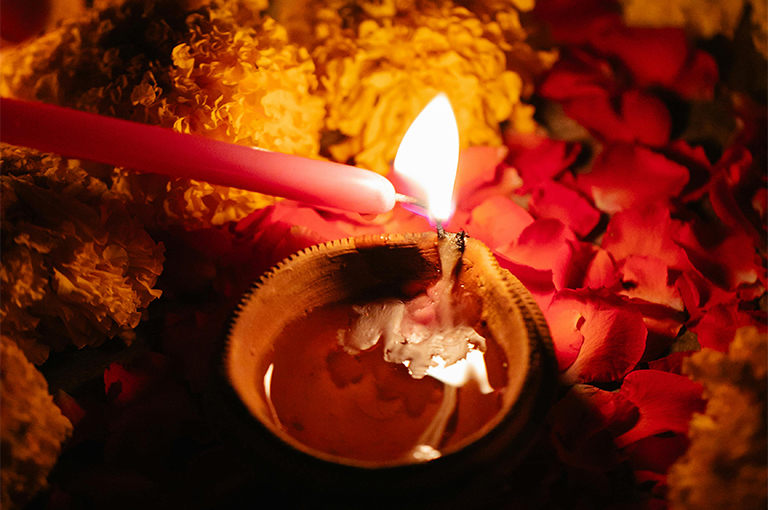Hindu End-of-Life Beliefs and Practices

Hindu End-of-Life Beliefs and Practices
As part of our series on diverse cultural beliefs and practices on death and dying, we are grateful to the Sri Sadashiva Subramaniya Swamy Temple Foundation for an enlightening article on Hinduism. For more information, visit https://www.subramaniyaswamytemple.ca/
In Hinduism, beliefs and practices surrounding the end of life are deeply rooted in the concept of reincarnation and the cycle of birth and death, known as samsara. Here are some key principles and practices related to the end of life in Hinduism:
1. **Preparation for Death**: Hindus believe that death is a natural part of the cycle of life, and individuals are encouraged to contemplate and prepare for death throughout their lives. This includes living a virtuous life, practicing selflessness, and cultivating spiritual awareness.
2. **Karma**: It is believed that one’s actions (karma) in this life will determine their fate in the next life. Therefore, it is essential to lead a righteous life and perform good deeds to ensure a positive rebirth.
3. **Cremation**: One of the most common funeral practices in Hinduism is cremation, as it is believed to release the soul from the body and facilitate its journey to the afterlife. The ashes are typically scattered in a sacred body of water.
4. **Last sacrifice or Last Rites**: The final auspicious ceremony, or last rites, is performed to guide the soul of the deceased towards the afterlife. Family members perform rituals and prayers to help the departed soul transition peacefully.
5. **Reincarnation**: Hindus believe in the cyclical nature of life and death, where the soul is reborn into a new body based on its karma from past lives. The ultimate goal is to attain liberation (moksha) from the cycle of reincarnation and reunite with the divine.
6. **Shraddha Ceremony**: The Shraddha ceremony is an annual ritual performed by family members to honor and remember deceased ancestors. Offerings are made to ensure the well-being of the departed souls and seek their blessings.
7. **Mourning Period**: Family members typically observe a mourning period after the death of a loved one, during which they refrain from certain activities and rituals to show respect for the deceased.
These beliefs and practices reflect the profound spirituality and intricate rituals that surround the end of life in Hinduism, emphasizing the importance of honor, reverence, and the eternal nature of the soul.
